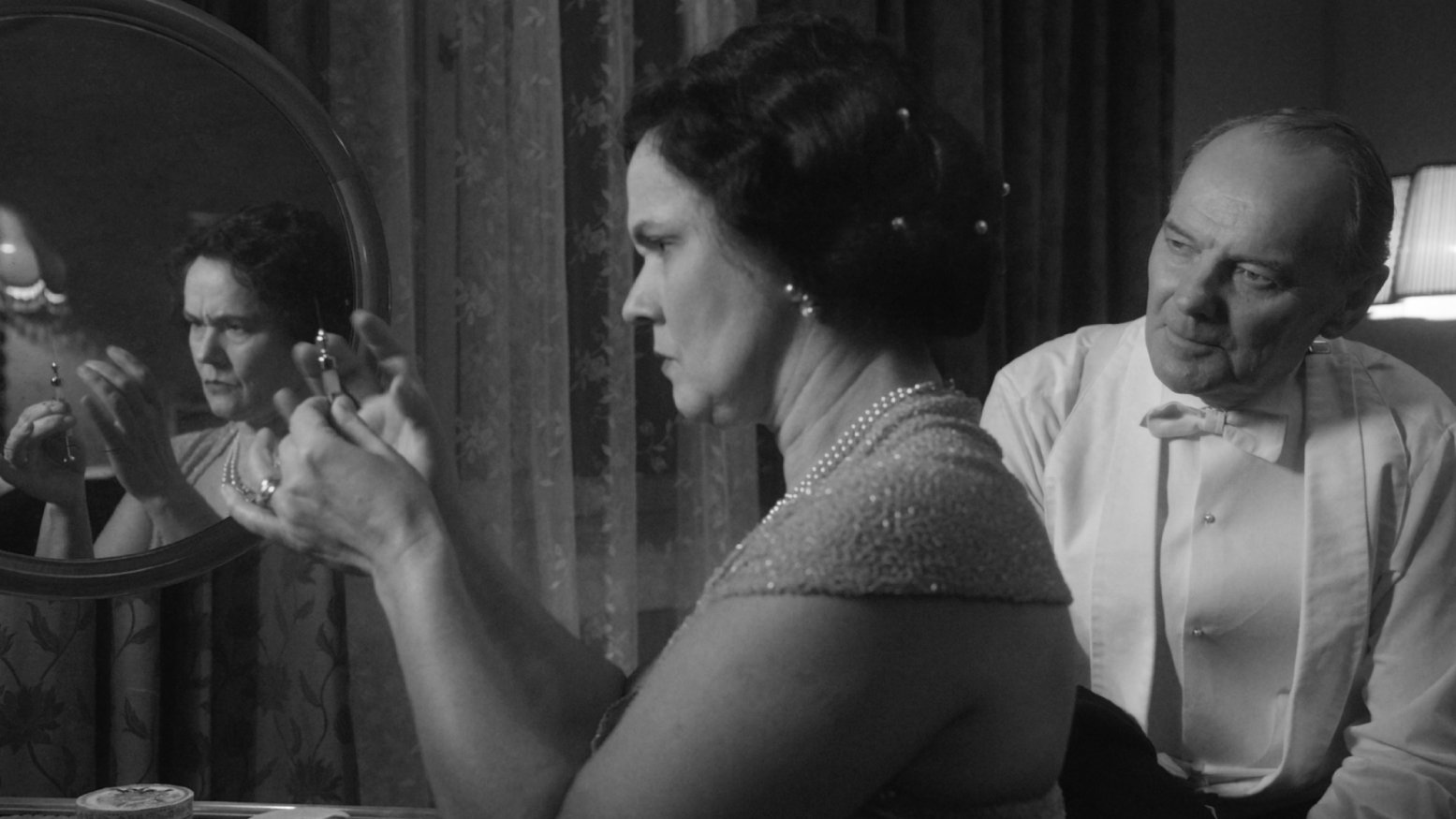Whew -- this is the third new film (from abroad, of course) to give us succulently good black-and-white cinematography in about as many weeks. First Ida, then A Coffee in Berlin, and now THE LAST SENTENCE (Dom över död man), the new movie from award-winning (and Oscar-nominated) Swedish director Jan Troell (shown below). Those of you who love black-and-white films will want to take a look. And though its visuals may be the main reason to view the film, there are others, as well.
This is another up-close-and-personal look at Sweden during World War II, when that country insisted on its "neutrality" and so escaped, as did Switzerland, the more complete Nazi takeover that the rest of Europe and Scandinavia underwent. In the latter days of our own fake and unnecessary wars -- from Vietnam to our current forays into Iraq, Afghanistan and maybe now Syria (they do no good for us, except to keep the big corporations profiting, and cause unbelievable harm to those we pretend to be helping) -- it may be difficult for the younger generation to understand what the world was like when one crazy dictator in one sheep-like country managed to convince its citizens that Germany joined with Austria (and then Italy and Japan) could take over the whole world. Yes, this does sound like the plot of some SuperHero-fueled blockbuster, but there you are. Or were.
Though it deals with life in pre- and then wartime Sweden, The Last Sentence is really more of a character study. The character here -- and what a character he is! -- is a real-life fellow named Torgny Segerstedt (played by the fine Jesper Christensen, shown above and below), who reigned as editor-in-chief of one of the Swedish newspapers at that time. Torgny, as we see in the film's very first moments, is thoroughly anti-Nazi/anti-Hitler. In most other ways, however, he's one cold, narcissistic son-of-a-bitch.
The movie opens with a quote from Torgny himself: "No human being can withstand close scrutiny," which is pretty much bullshit, though it would certainly apply to Segerstedt. I think a lot of us humans could withstand close scrutiny. Our flaws would be revealed, of course, but if we have half a notion of who we are, this will not cause us to fall apart. Clearly, it would do so for Segerstedt. As the movie progresses, we find out why.
It progresses rather slowly, however, and somewhat repetitively, and that is the main problem with Mr. Troell's work. (This was not true of his most recent narrative movie, Everlasting Moments, which was long but full of life and incident.) Torgny, as seen here, is just not all that interesting a man. Once we learn of his political stance, and then of his treatment of the women in his life (he does love his dogs, however!), there is not much more to keep us watching -- except perhaps the surprise we get from seeing older characters involved in extra-marital affairs, having sex and doing things that Hollywood sets aside only for the young (or sometimes for an older man and younger woman). This is certainly bracing -- for a time, at least.
We also get an interesting sense of what it might have been like, back in the 1930s and 40s to engage in what was called an "open marriage." Torgny is "having it off" with the wealthy Jewish wife of the man who owns the newspaper that he edits, and it is clear that this newspaper owner knows what is going on and accepts it. Torgny's wife also knows what's afoot, but is not nearly so accepting.
We get small forays into the past, as Torgny sees himself as a child, engages in conversation with his long dead mother, and also -- eventually -- with the other women who have "left" him. By the time the movie ends, this fellow has quite an otherworldly harem.
Over all, we get more than a decade of Segerstedt's life, including a couple of incidents that show how bright and conniving he could be vis a vis the Swedish government's obeisance to the Nazis. We also see that he was most probably a good enough writer. He was indeed brave with his pen (which his paramour is fond of calling his "lance," though it was clearly his other lance in which she was most interested).
There are also excellent performances from Pernilla August (above and below) as Torgny's paramour, Ulla Skoog as his put-upon wife, Björn Granath (below, right) as the cuckolded husband, and a very quiet, sad job from Johanna Troell as Torgny's helpful but completely ignored daughter. That fine cinematography, by the way, comes via Mischa Gavrjusjov.
The Last Sentence -- from Music Box Films and running two hours and six minutes -- opens this Friday, June 20, in New York City at the Lincoln Plaza Cinema, and in Los Angeles at Laemmle's Royal in West L.A. In the weeks to come, it will open in another nine cities. Click here and then click on THEATERS, midway down the screen, to see all currently scheduled playdates.












No comments:
Post a Comment